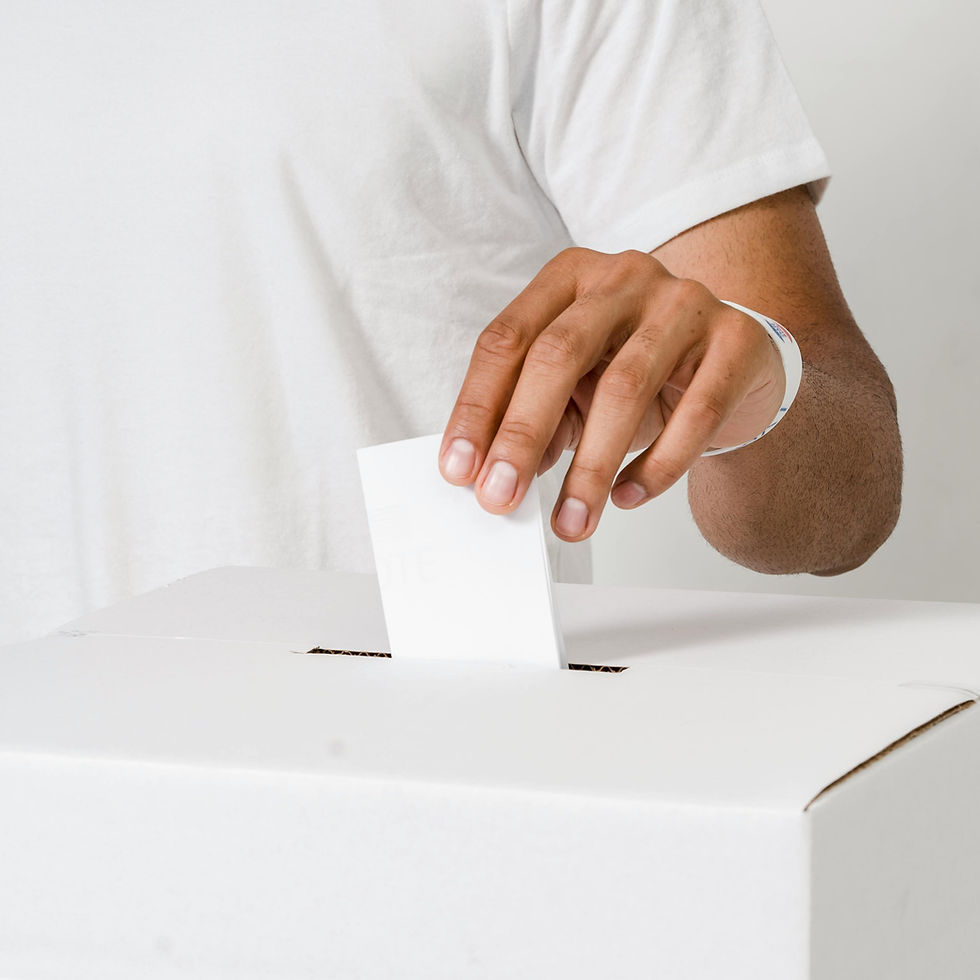The Silencing Act
- meganp0208
- Apr 8
- 4 min read

Although this act was introduced over a year ago, the SAVE Act is starting to gather more attention from constituents. More and more individuals are discovering the harsh requirements of these new voting rules as debate in Congress is getting heated, with support only growing. The SAVE Act threatens to overturn the way we vote and create a more difficult situation when you want to cast a vote.
This act, full name being The Safeguard American Voter Eligibility Act, aims to install more requirements to vote in federal elections, such as documentary proof of U.S. citizenship and potentially more federal documents. The goal, as described by the summary of the act, is to ensure that “only U.S. citizens” are registered and allowed to vote. Apparently, non-citizens are a huge problem when it comes to voting in federal elections. The act also lists new punishments to federal workers at the polls who fail to verify voters’ proof of citizenship, most notably prison time.
There are a magnitude of problems with this act. Married women and citizens without passports would suffer from this new act. Affecting millions of married women, a birth certificate may no longer match someone's legal name, due to a legal name change, example being marriage. This would restrict married women from voting since proof of citizenship would not match. Many Americans do not own a valid passport, over 100 million to approximate. Lack of a passport limits your probability to prove you are a citizen, especially if they require more documents as proof. Just these two problems alone would restrict millions upon millions of voters from voting in federal elections. This obviously means that votes in federal elections, if this act is enacted, will not represent America as a whole, but rather just the few who have been granted the ability to fill in circles on a piece of paper. Total representation. Additionally, this act totally uproots the process of registration online, and even in person. Absentee ballots would also face rework since now you would have to go into offices to prove you're a citizen. Constituents would need to go to an office of their elected officials to present proof of citizenship before they can register online. Of course accommodations will be made for individuals who have a disability, just after you prove to your elected officials that you are disabled in their offices, which means you still have to go to their office. After all that, you can vote from home! Moreover, the ability to vote from the comfort of your home due to disabilities or personal reasons will become increasingly difficult, when the whole purpose of the absentee ballot is to make voting easier.
Voting purges will acquire as well. The SAVE Act will enforce that states will check on an “ongoing basis” that only U.S. citizens are registered to vote. The act will set up a program to “identify individuals” who are not U.S. citizens using information given by “specified sources”, according to the summary of the act. By requiring states to frequently check the status of their registered voters, purges would be encouraged. These purges would remove unsuitable voters from registration, but how can we ensure that voters who are eligible are not removed? The act states that they will receive information from government databases, but lacks to explain and ensure that discrepancies will not occur. This act threatens to overturn our freedom to vote as we know it.
Even if many constituents of the U.S. oppose such a bill from passing, many representatives support such a bill passing. This bill passed in the House in July of 2024, receiving 221 votes. 216 of those votes were casted by republican representatives and 5 democratic representatives. Almost every republican representative voted in favor of this bill with only 4 choosing not to vote. Democratic representatives voted against the bill, with only 10 not voting at all. This decision seemed to follow party lines, especially when it discussed issues such as citizenship. However, these votes are very contradictory to the people they represent. According to the Center for American Progress, republicans are “less-likely to possess a passport” and republican women are “twice as likely to have changed their surname”. By voting in favor of and passing this bill, republican representatives are producing a bigger problem for those they represent since the bill could potentially limit their ability to vote. Supporters are only focused on the fact it could remove non-citizens from voting in federal elections, but are ignoring the idea they could be suppressed instead.
As analysis of the SAVE Act is revealed, the harsh reality of what voting in federal elections can become is starting to sink in. Those with changed surnames, those without passports, and those who rely on registering at home or online will face the true effects of this change. The SAVE Act is set to change regulations in federal elections by creating a difficult process to go through. You may not be affected by this bill. Yet, think about your mother, who changed her surname when she got married. Think about a friend, who can’t afford to purchase a passport. Think about a person you know, who is disabled and is unable to go in person and vote every year. They will be prevented from voting, and so will millions of others.
This bill is on the calendar to be debated in the Senate. A senate that is majority republican representatives. If it is passed, voting will become more difficult than it is now.





Comments